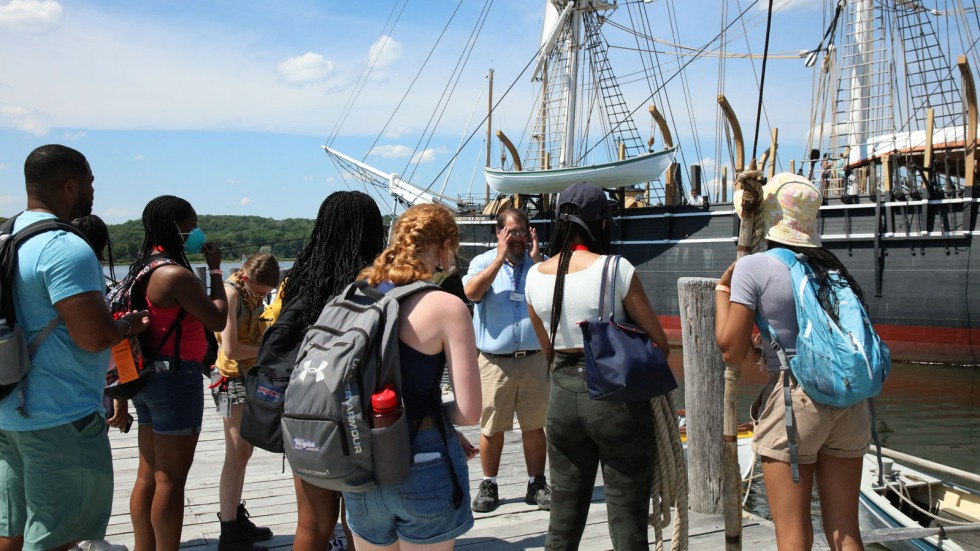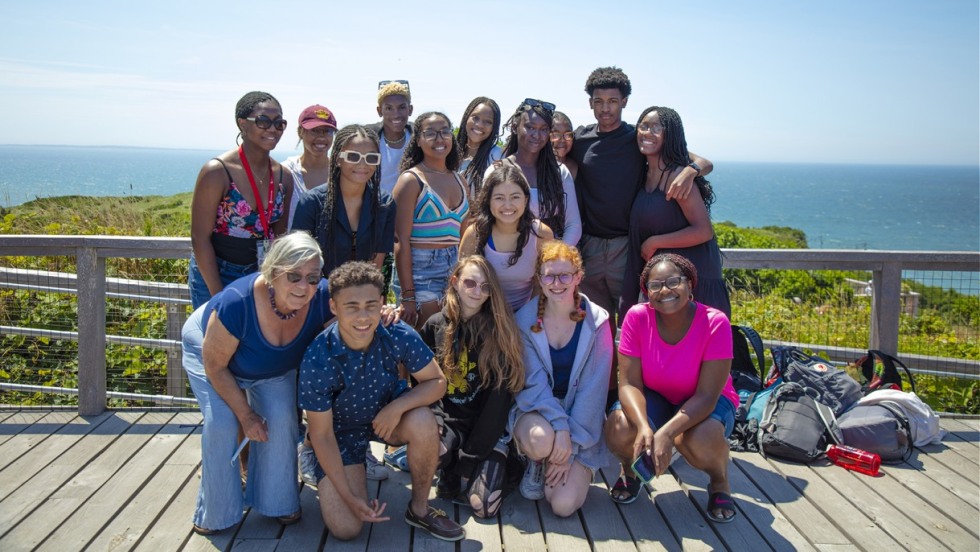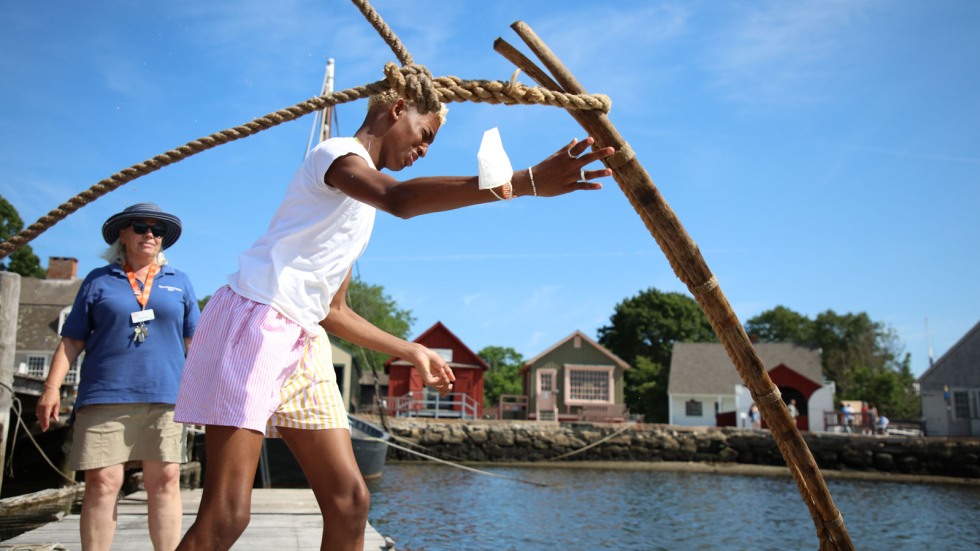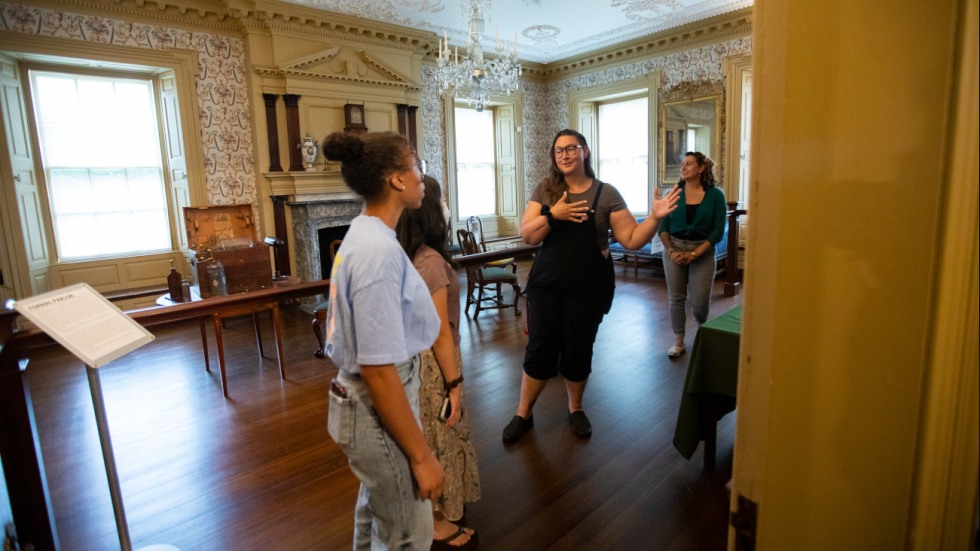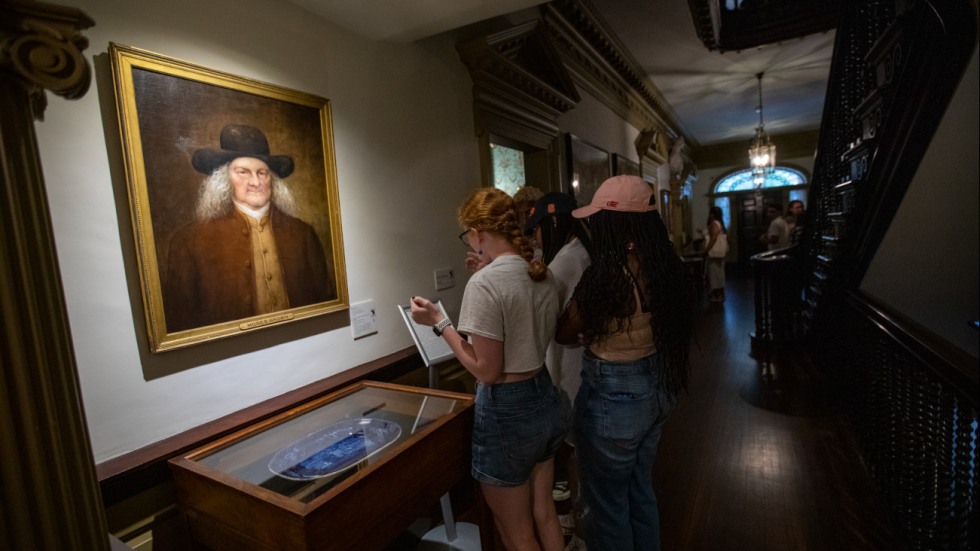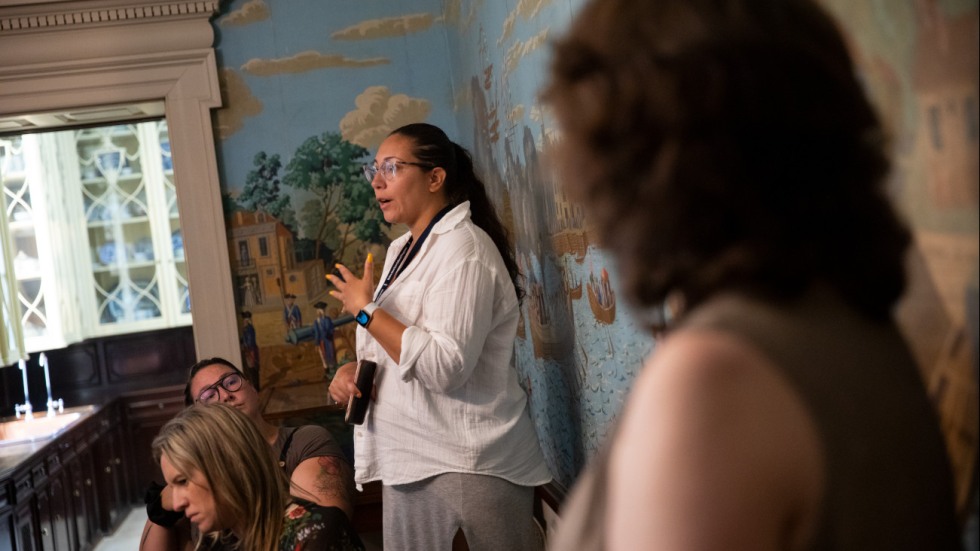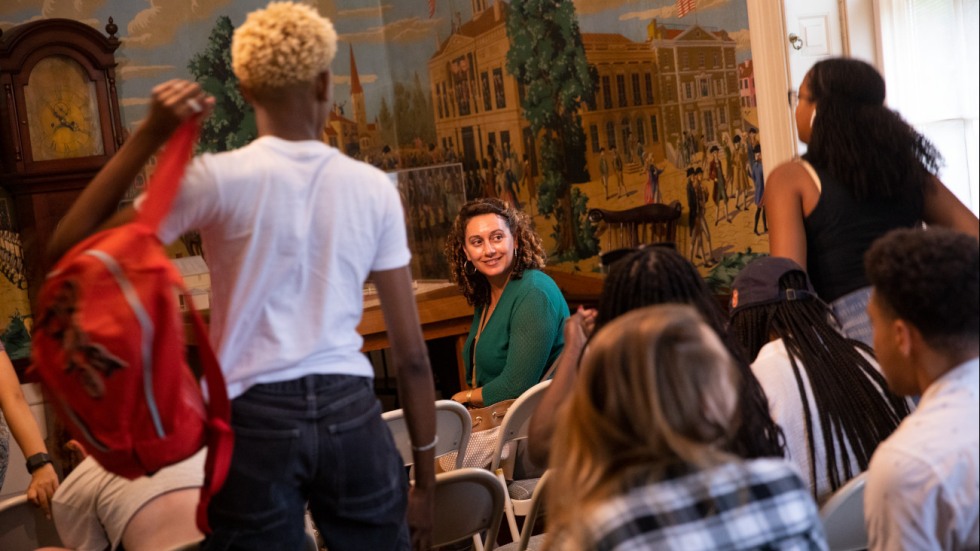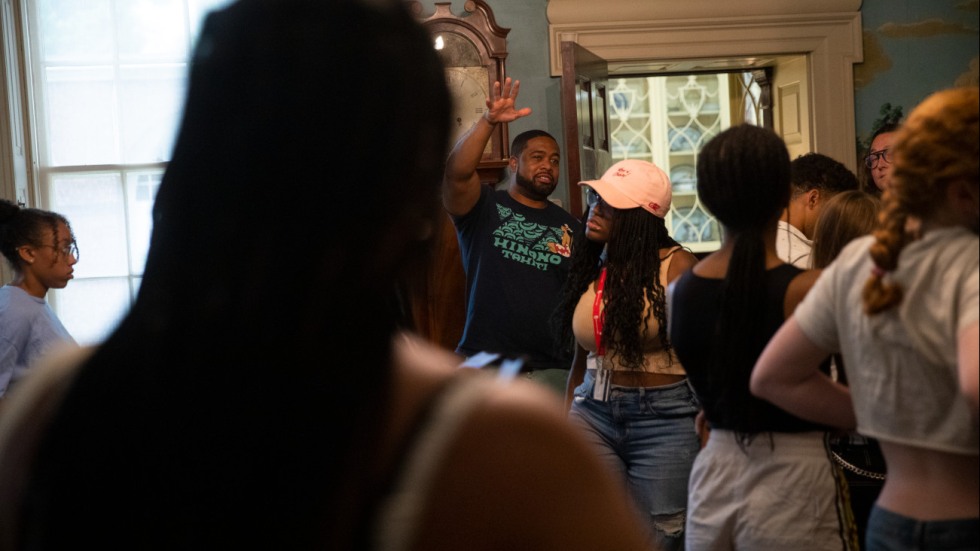PROVIDENCE, R.I. [Brown University] — Clam diggers are familiar summer sights on New England shores, but a group of young adults at Rhode Island’s Misquamicut State Beach in July may have stood out for their rather distinctive approach. The troop of local high school students spent the sunny afternoon learning how to dig for quahogs — using only their feet.
“We practiced using our toes to feel for the quahogs in the sand and would then try to lift them with our feet,” said Lily Aspen, one of 17 students on the Westerly, R.I., beach. “It reflects the traditional way Indigenous natives would harvest for shellfish.”
Wet and muddy at least in that moment, the students immersed themselves in the culture of the region’s Indigenous peoples, including the Narragansett, Niantic, Wampanoag and Manissean tribes. Maryann Gobern Mathews, a Manissean descendant and founder of the Manissean Tribal Council, explained that many Native Block Islanders migrated between forest and coastal areas to hunt, fish and clam, and she shared the history of the community’s challenge to remain good stewards of the land while maintaining traditional practices that promote food sovereignty.
The day’s visit was one of many outings planned for the inaugural cohort of students to participate in the Reimagining New England Histories High School Summer Institute. Held on Brown University’s campus from July 10 to 22 — and led jointly by the University’s Center for the Study of Slavery and Justice, the Haffenreffer Museum of Anthropology at Brown, and the Tomaquag Museum — the two-week residential program invited young scholars to study and think critically about the histories and experiences of Indigenous and African American people in the Northeast.
“The summer institute employs an experiential learning model that allows students to explore and comprehend — in a deep and meaningful way — the challenges of equity and inclusion faced by communities of color throughout New England,” said Mack Scott, a visiting assistant professor at the Center for the Study of Slavery and Justice.
